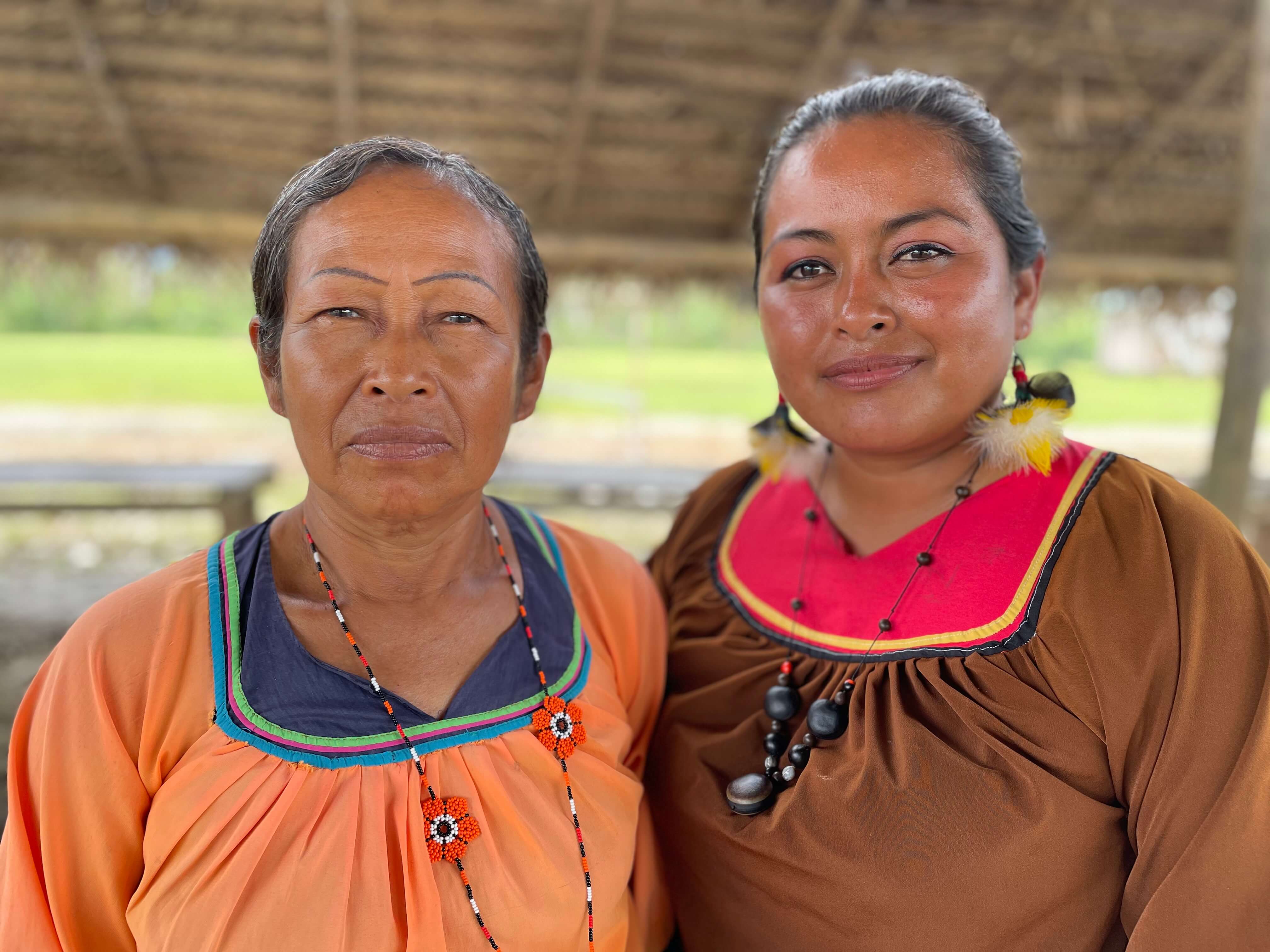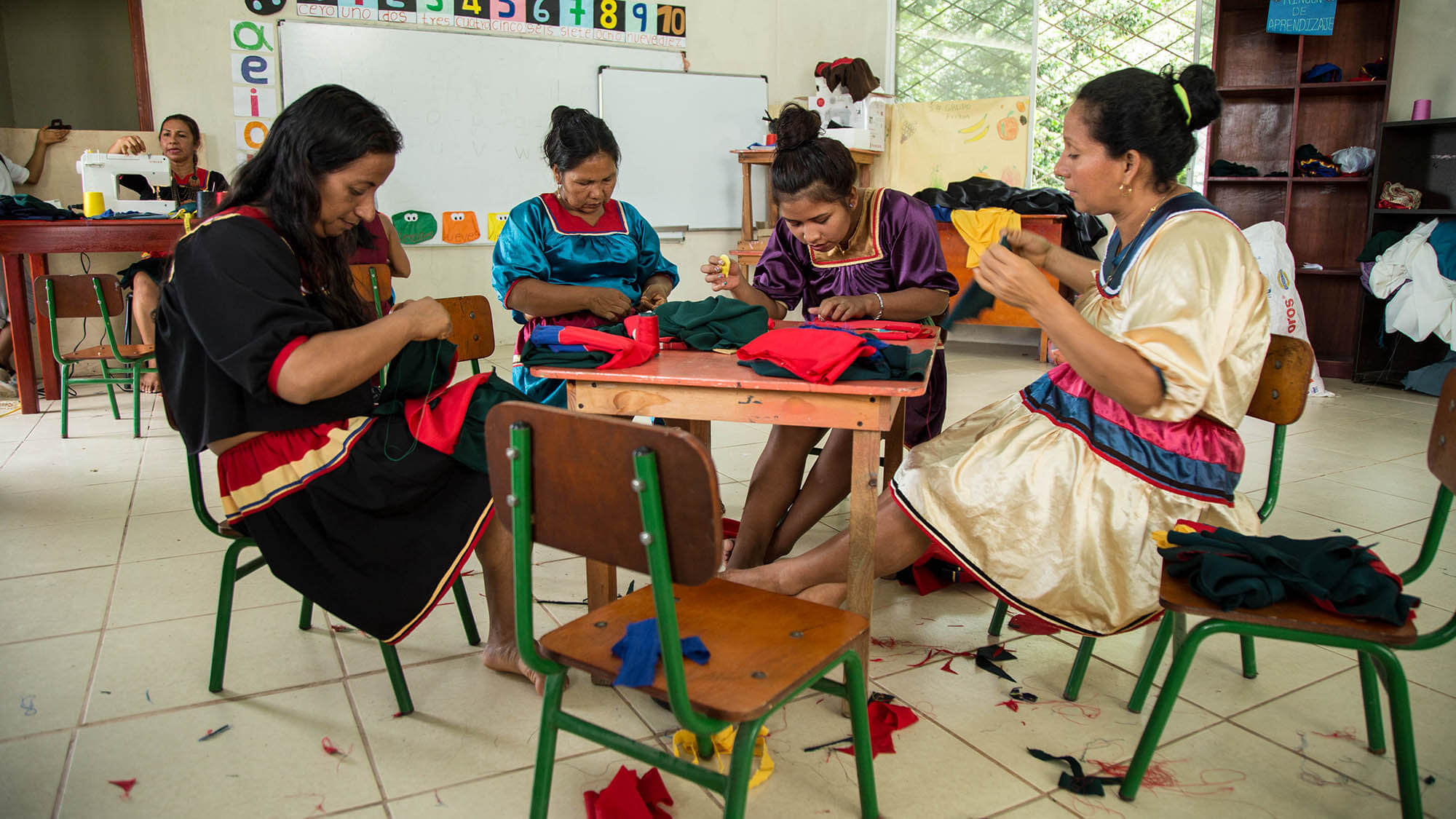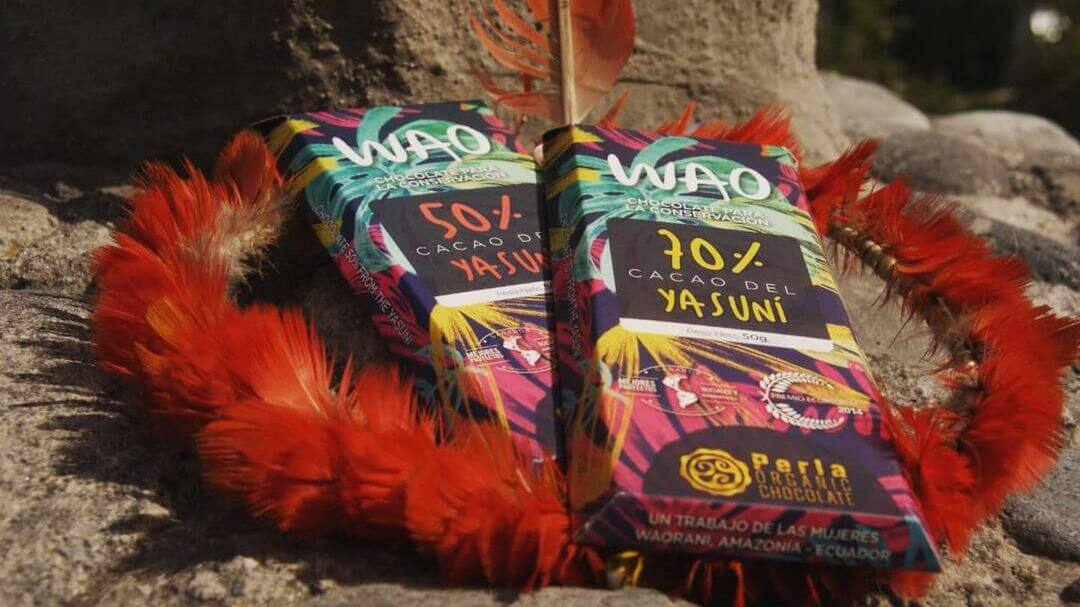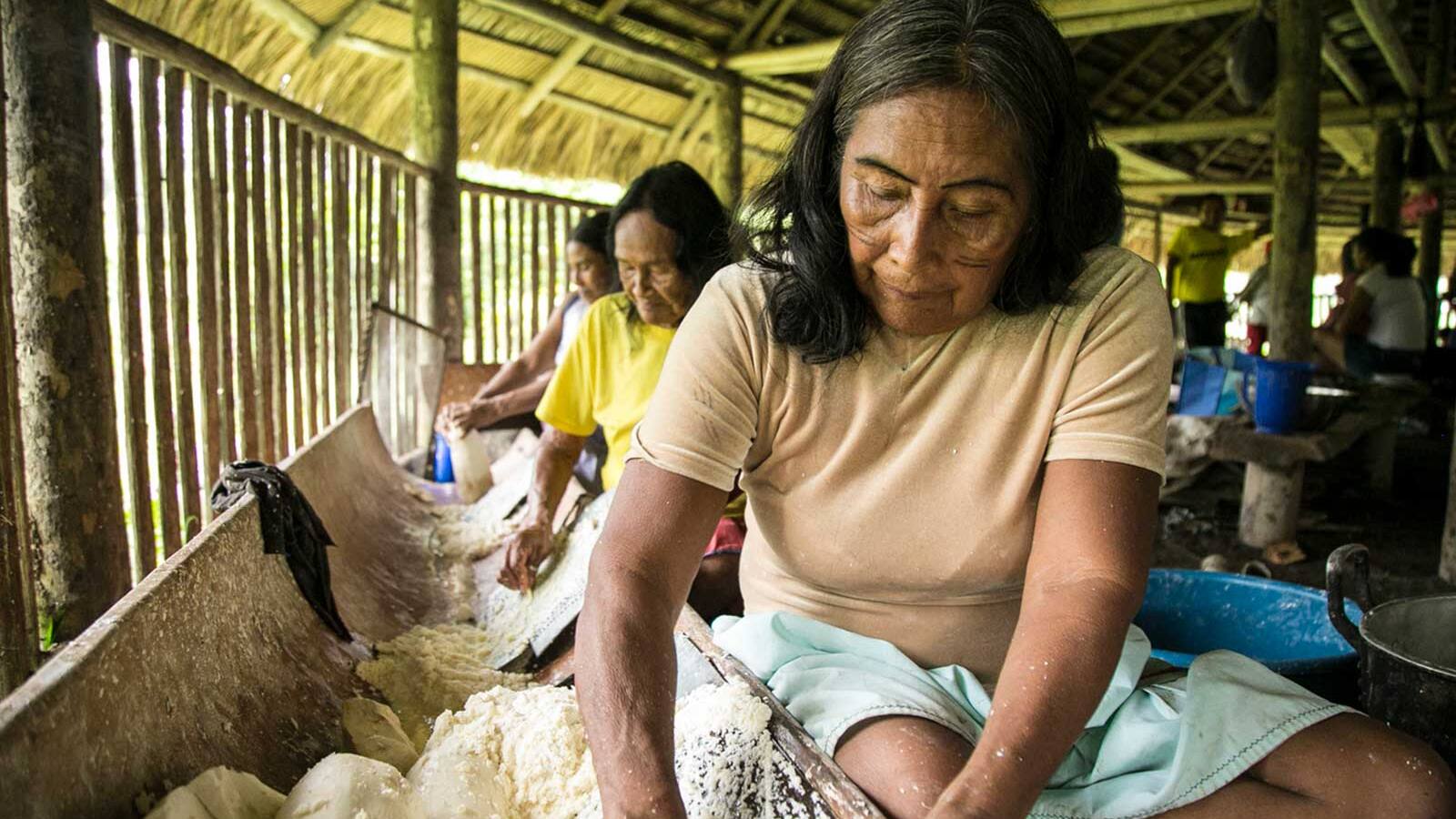“Every woman here is a leader”. With these words, Waorani leader Norma Nenquimo greeted thirty Indigenous women last week in the organizing hub of Indigenous organization Ceibo Alliance in the northern Ecuadorian Amazon. It was a historic moment for the organization and the women of the nations it comprises: they were gathered to celebrate the launch of their very own leadership school, a dream that has been in the making for many years. A school designed by Indigenous women for Indigenous women.
Thirty Indigenous women leaders from twelve communities of the Kofan, Siona, Siekopai and Waorani nations are now part of this new Amazonian school, which aims to fortify their leadership skills and provide them with the tools, resources and networks needed to support their solutions and conservation efforts in some of the communities hit hardest by oil extraction, mining, industrial agriculture, and COVID-19 in the Western Amazon. From pioneering the design of community-based enterprises to revitalizing food sovereignty and traditional health systems, these women are building an innovative model to strengthen the autonomy of their peoples, and to defend their lands, cultures and ways of life from the pressures of colonization, extractivism and climate change.
As the traditional caretakers of the land and the custodians of vital ancestral knowledge and skills, strengthening effective community-based women’s leadership is crucial to protecting their critical forests and the climate. Across the Amazon, women are not only putting their bodies on the line to defend their ancestral territories from extractive threats like oil and mining and to fight against systematic racism, discrimination and violence: they are also reimagining the future for their peoples by drawing upon hundreds of years of traditional forms of community resilience and forest stewardship. Through the creation of community-based associations and enterprises, these women are providing vital livelihood opportunities for their families, all the while safeguarding their territories and invaluable cultural knowledge for future generations.
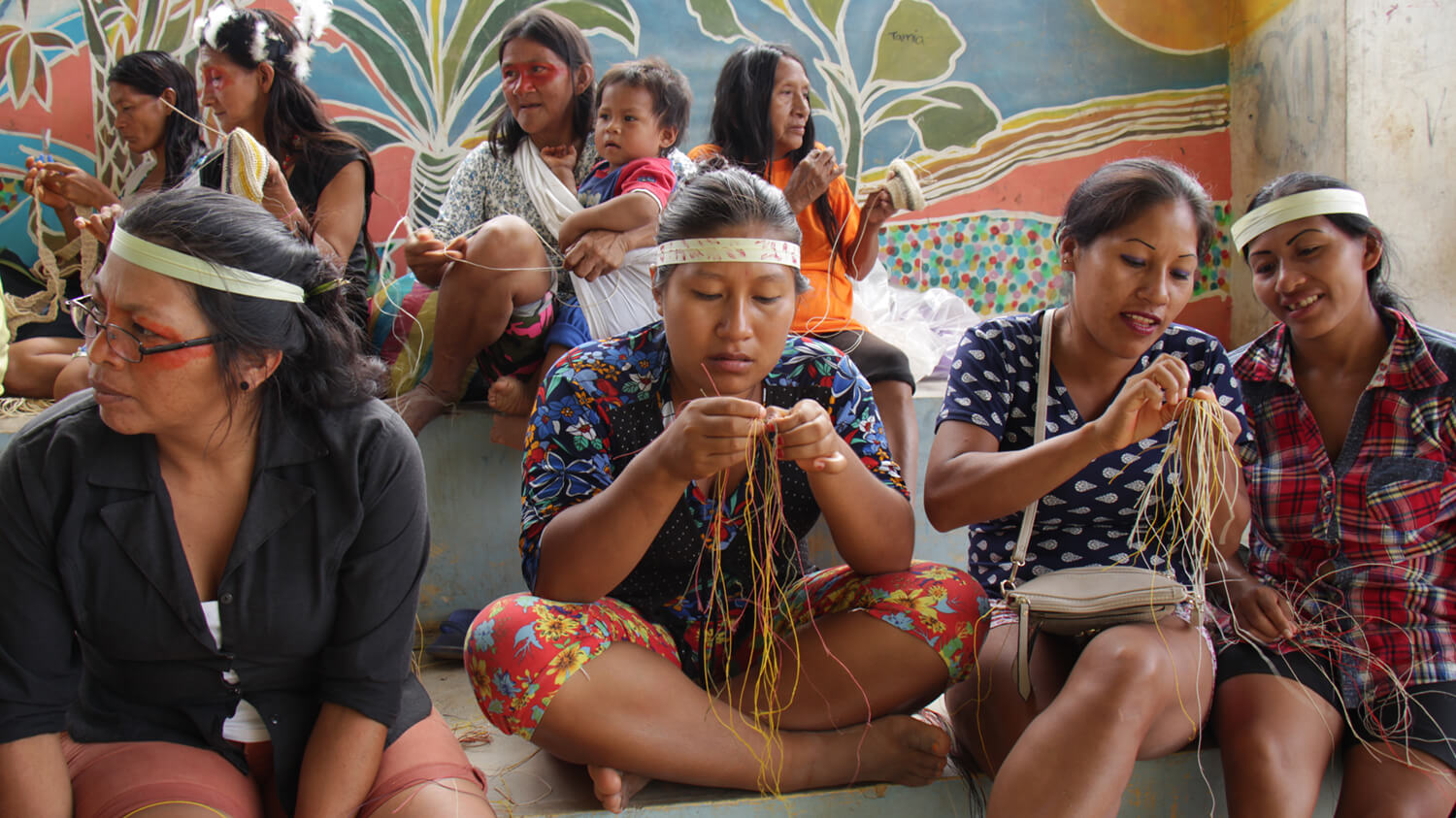
“This school is very important, it’s about empowering our leadership. Although we come from different cultures, we share one vision” declared Waorani leader and member of Ceibo Alliance’s Leadership Council, Ene (Norma) Nenquimo, during the launch event. “Together, we are stronger, and together, we can break through the barriers to build new paths forward for the autonomy and resilience of our peoples. We want this school to be a space for learning but our vision is to also transfer the knowledge we gain to other women, so that they too can be inspired to take on leadership roles in their communities. This is our dream in motion”.
For the past six years, Amazon Frontlines and Ceibo Alliance have been working together to support women-led and community-based enterprises and regenerative projects, which range from the production of a traditional black chili pepper sauce and organic chocolate to the creation of artesanía such as accessories and jewelry. Through this process of accompaniment and mentoring, the seed for the leadership school was planted and then designed with the participation of girls, women and grandmothers from the four nations, whose ancestral homelands stretch across more than five million acres of primary rainforest. In parallel to the leadership school, a new program for young Indigenous women storytellers is also underway and aims to equip budding women filmmakers, photographers and journalists with the tools and techniques to share their perspectives, stories and experiences with their communities and the world, and to strengthen women-led processes.
Kofan women from the women-led artisan associations of Shame’cco in Sinangoe (right) and Sukû in Dureno (left)
Organic chocolate by the Waorani women of AMWAE (left); Siekopai women prepare their signature black chili sauce (right).
The school directly supports the women leaders from five Indigenous women-led associations:
- Sukû, Kofan Women’s Artisan Association of Dureno
- Shame’cco, Kofan Women’s Artisan Association of Sinangoe
- Multicolor Women (ASOPROASIENW), Siekopai Women’s Association of Wai’ya and San Pablo
- Romi Cuara Taye, Siona Women’s Association of Buenavista
- AMWAE, Waorani Women’s Association of the Ecuadorian Amazon
In addition, the school also supports young women who aspire to create their own initiatives. During the first year, women will participate in capacity building workshops, exchanges and skill-shares in communities designed in order to impart relevant, holistic knowledge from community enterprise, administration, and public speaking, as well as agroecology, cultural practices and ancestral medicine in order to foster cross-pollination across initiatives. The second year of the school will focus on hands-on accompaniment in the implementation of economic resilience projects and strategic planning.
“Despite all the difficulties we face, we continue to fight. It can be hard to work by ourselves, so I am very happy to be connected with other women through this network. Sharing experiences with other women gives me a lot of energy. It is beautiful to know that we are not alone in our struggle”, said Claudia Piaguaje, the President of Romi Cuara Taye, a Siona women’s association from the Putumayo River on the Ecuador-Colombia border and one of the five women-led organizations supported by the school.
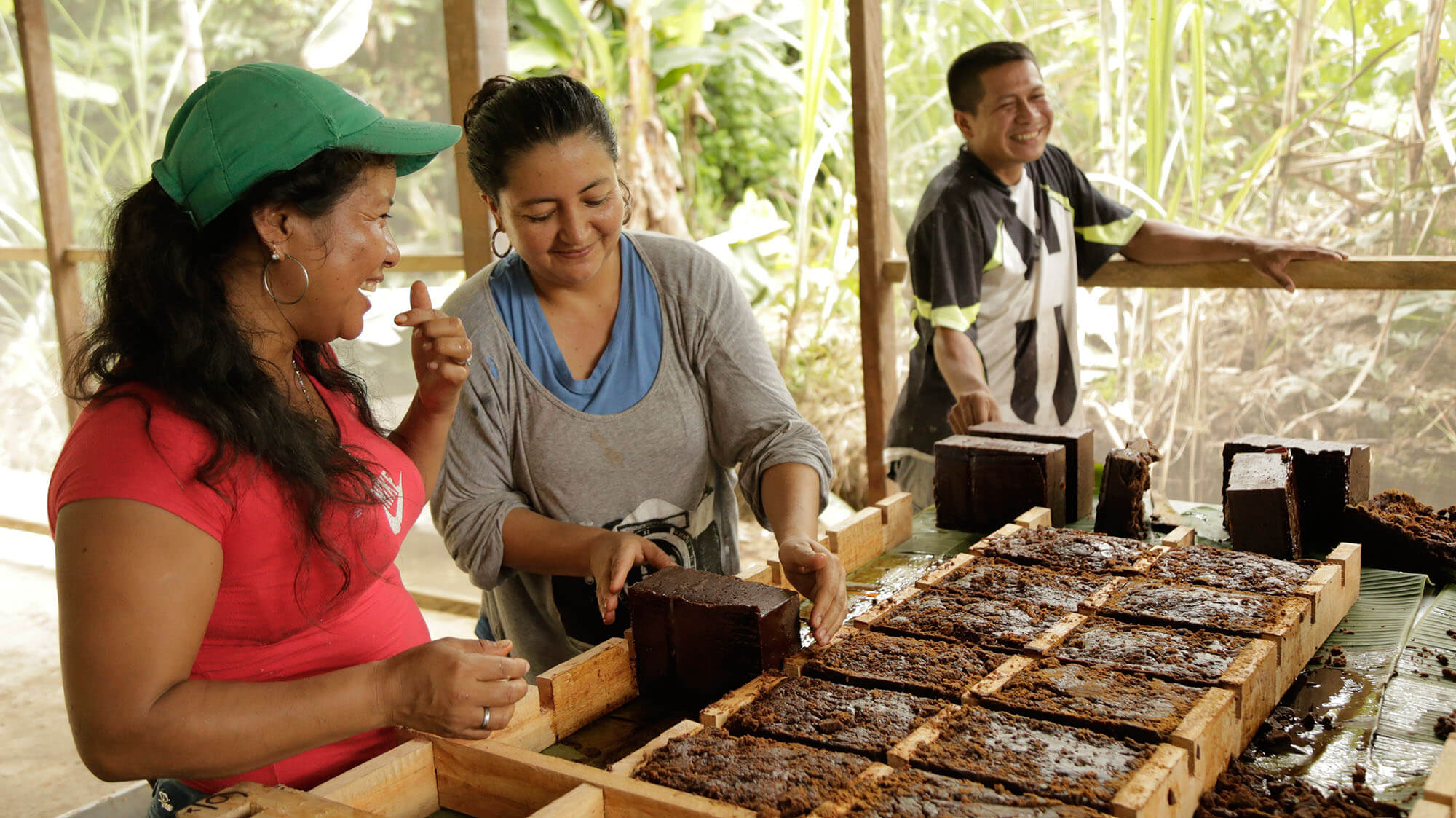
Siona women of the Putumayo river on the Ecuador-Colombia border prepare panela as part of their women-led association and community-based micro-entreprise.
“Women have a fundamental role in the strengthening of our people’s autonomy and resistance. Their voices have become the most important in our territorial defense processes”, said Alex Lucitante, a young Kofan leader and member of The Ceibo Alliance, as he joined the launch event virtually from his community in order to congratulate the women. “This school provides a powerful platform to share experiences and strengthen networks across our communities and nations, and to inspire new women-led processes for the long-term protection of our territories and cultures”.
Over the coming months, we will share exclusive stories and interviews with this inspiring network of women from the Kofan, Siona, Siekopai and Waorani nations. Watch this space!

